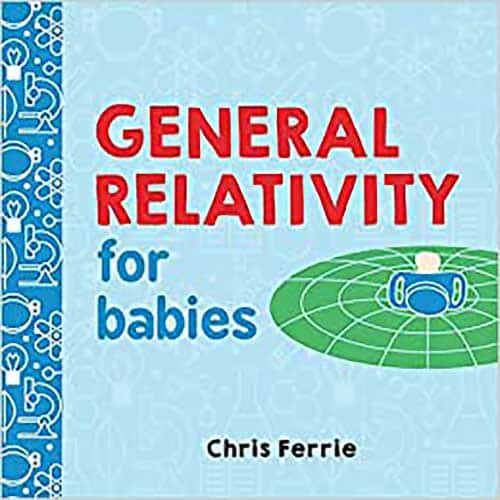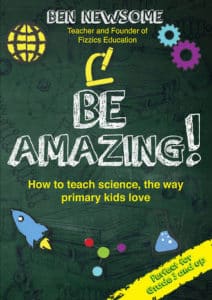Whilst travelling overseas this year, I finally got a chance to pick up a book I’ve eyed off for many years;
Ferri, C. (2017) General Relativity for Babies. Sourcebooks
If you have ever had the chance to browse through any of Chris’s collection of books, you can immediately tell that the content is incredibly well thought out, clear and most importantly, accessible to many readers. As I took it back to the hotel to read it got me thinking;
- How often do we stop and think about the imagery and words that we use in our lessons?
- Are the words that we use overly complex?
- Are the images that we use cluttered?
- Are our lessons filled with jargon & acronyms?
Too often I have watched brilliant public presentations that have several of the points above, and as such, have lost their audience in the process. The principal role of science communicators is to communicate complex content in ways that resonate with people. There is a real trap in being so wrapped up in the large words or complex processes that we miss our audience’s eyes glazing over. Sure, they might politely applaud, but did you actually communicate the content?
Simplicity is key for science lessons, no matter whether you’re a science teacher, science communicator or otherwise. Now of course, pitching to the right audience is part of this, however if Chris Ferrie’s books are anything to go by, you can teach some serious science in very few words combined with clear images that support the content. When I read this book with a very good friend of mine, she immediately was able to grasp the content when she asked some insightful questions, despite not having been exposed to general relativity concepts in the past.
So with this in mind, the following is a simple checklist to run past before your next big public science presentation;
- Can you take away some words and still retain meaning?
- Can you change the words to simpler ones and still retain meaning?
- Can you create a simple graphic that communicates a complex message?
- Are you tailoring the content to the audience, or is it actually more tailored to what you are used to reading?
- As you build on concepts, are you taking the audience on a logical journey?
Keep your lessons simple first. Help your audience follow your thought patterns. Build on concepts with care and consideration for the learners, regardless of their age. You can always add complexity later, but they need to understand the basics first. Stay true to the science, but remember your job is to help them understand it too.
Happy teaching,
Ben Newsome.
Primary science teaching book
“Be Amazing! How to teach science, the way primary kids love”





























Comments